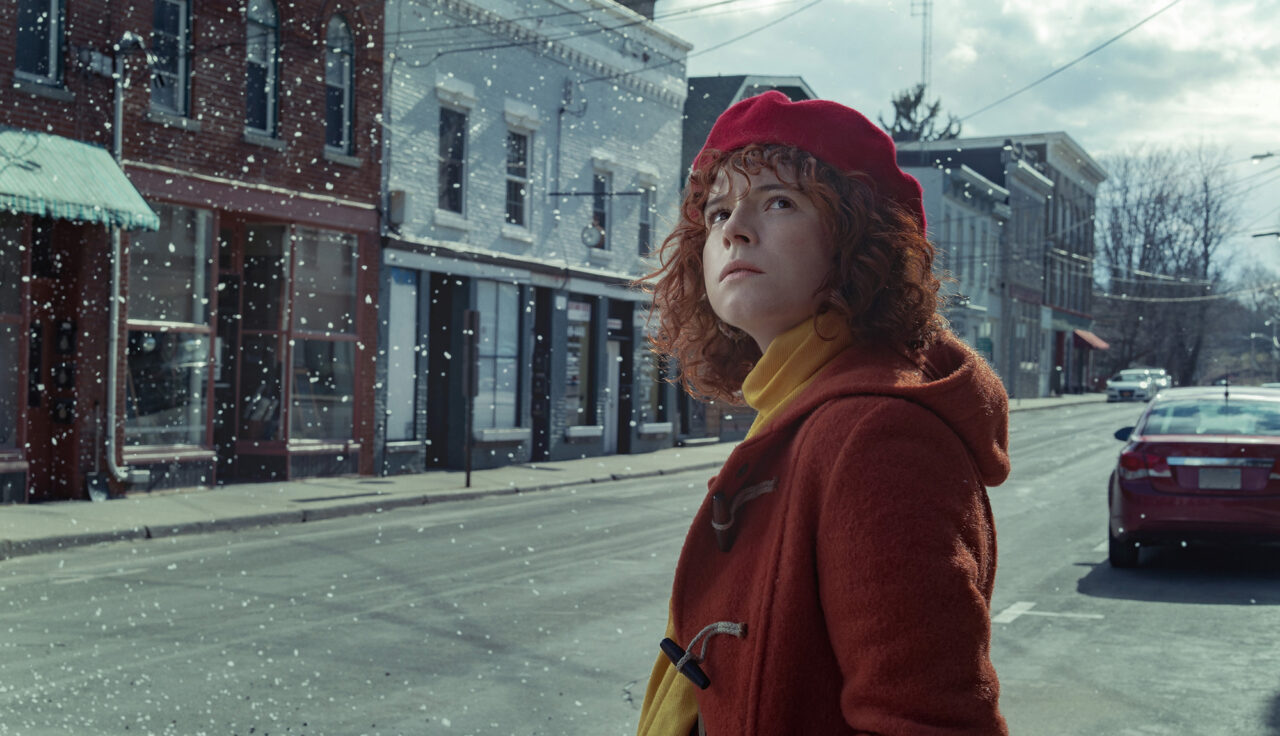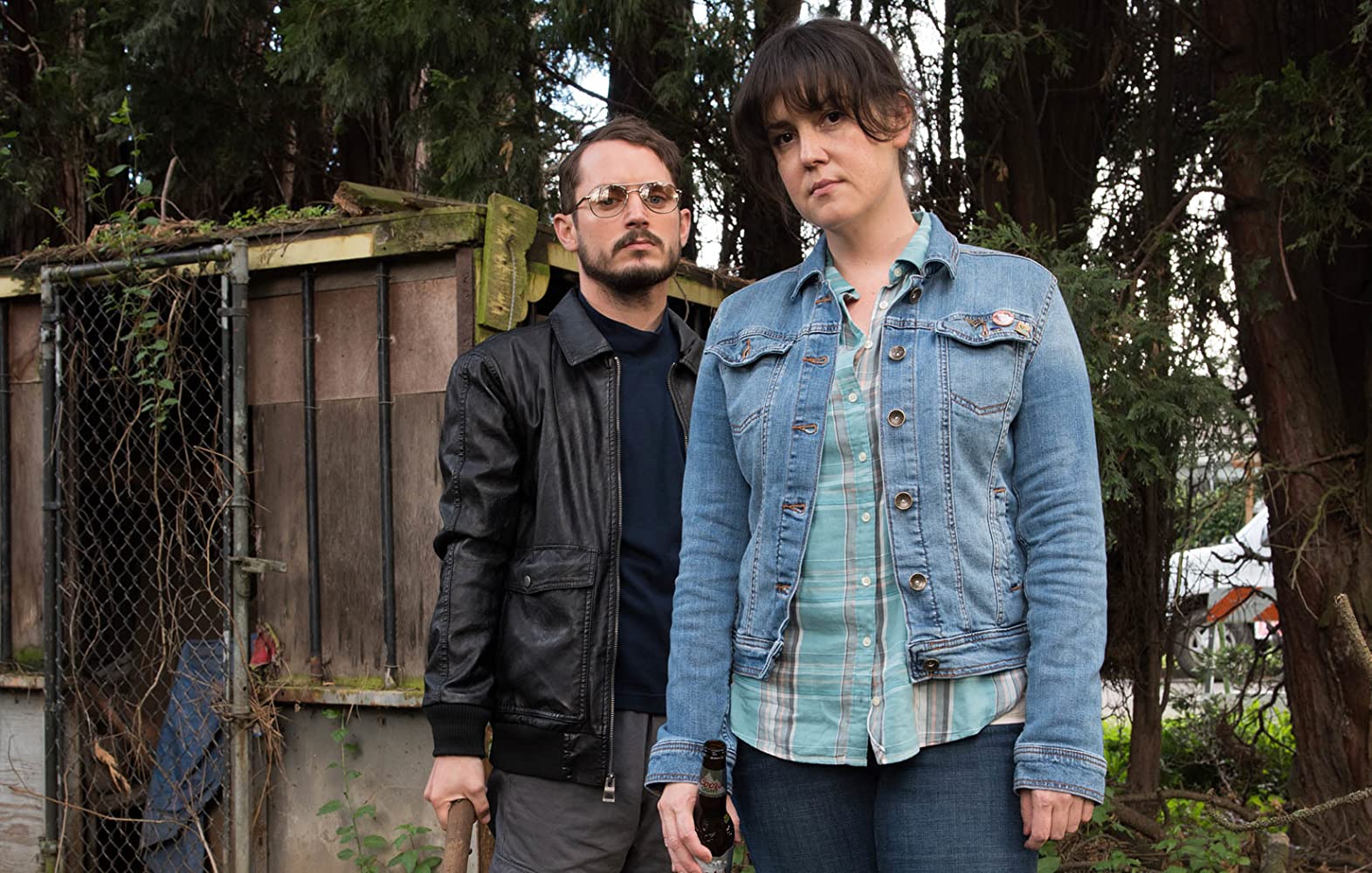Double Feature 09.18.20
I’m Thinking of Ending Things + I Don't Feel at Home


This week’s featured films, Charlie Kaufman’s I’m Thinking of Ending Things and I Don’t Feel at Home in This World Anymore, have more in common than first-person phrases for titles. They are both small, character-driven films with big ideas, reminiscent of movies made in the ‘90s during the peak of the American Independent film wave.
Nobody plumbs the deep recesses of the human psyche quite like Kaufman. Like his earlier films, including Being John Malkovich, Eternal Sunshine of the Spotless Mind, and Adaptation, I’m Thinking of Ending Things takes us inside the mind of its protagonist, played by Jesse Plemons. The film is demanding, leaving it up to the viewer to unpack the narrative, grasp the structure, and distinguish between reality and fantasy. The set-up is straightforward enough: A young woman (so-named in the credits, played by Jessie Buckley) goes on a road trip with her new boyfriend to visit his parents, who live on a farm in the middle of nowhere. The viewer is guided on the journey by the woman’s internal monologue, a red herring if there ever was, as we gradually come to realize that the woman isn’t at all who (or what) she appears to be. Things get weirder once they arrive at the house and meet the parents (David Thewlis and Toni Collette), who age backward and forward from scene to scene. As expected from Kaufman, I’m Thinking of Ending Things is a challenging puzzle of a film. But it is a moving, ultimately rewarding one even if you aren’t able to put all the pieces together.
When the cops do nothing after her house gets burglarized, a woman (Melanie Lynskey) decides to take matters into her own hands. It is not so much what was stolen, but the violation of her space that sets her off. I Don’t Feel At Home In The World Anymore, winner of the grand jury prize at Sundance in 2017, is a funny and affecting film about a woman who gets mad as hell and is not going to take it anymore, to coin a phrase. Her misanthropy had been building before the robbery: while reading in a local bar, a man strikes up a conversation about the book trilogy she’s reading and intentionally gives away the ending; a pile of dog poop steams just below the sign in her yard which reads No Dog Poop; a woman blatantly cuts in front of her at the supermarket. Once the investigating officer tells her she should have made it harder for someone to break into her house, the gears are set in motion. With the owner (a scene-stealing Elijah Wood) of the offending dog, the pair pursue the thieves, who turn out to be evil, really dangerous thugs, and so begins the “dark” part of this dark comedy. Karma plays a large role in the film, underscoring the fact that it is a two-edged sword.


